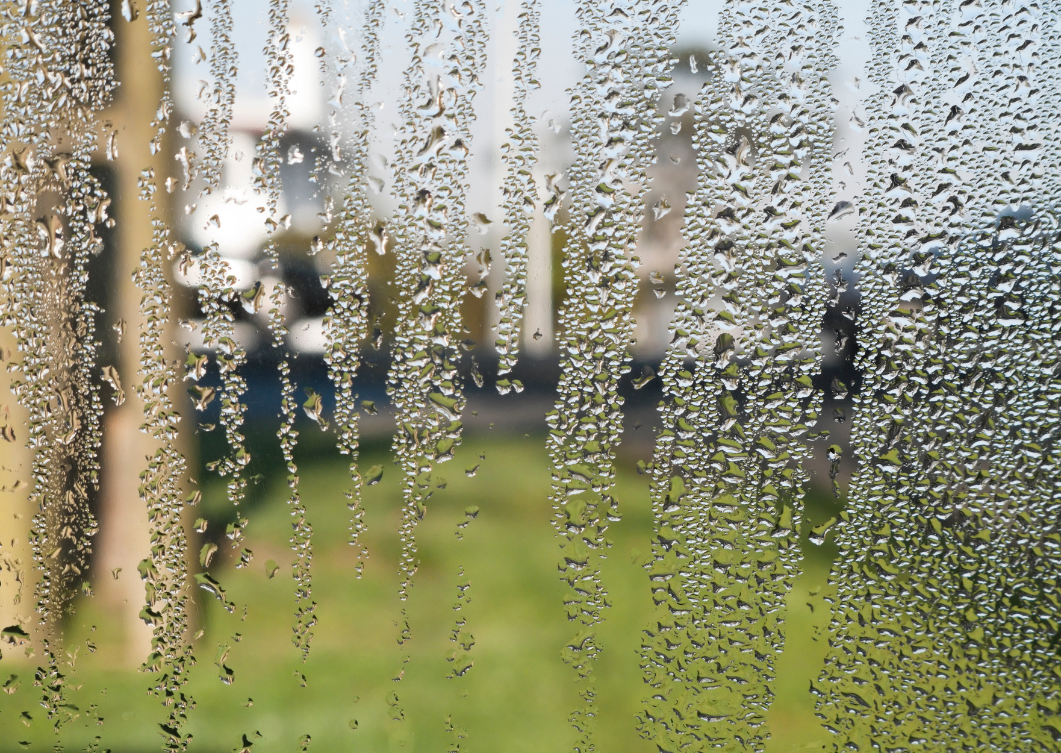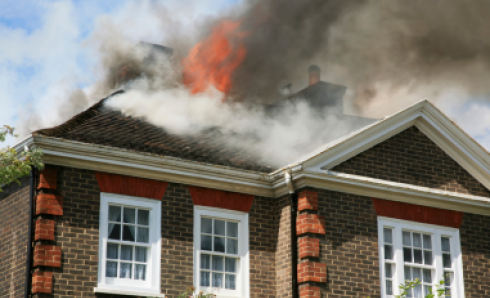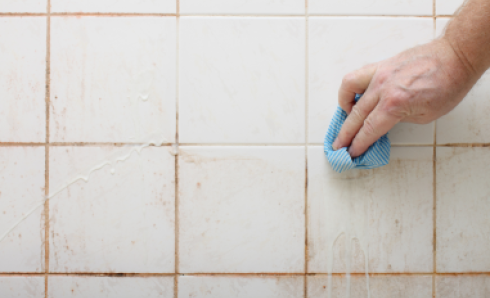We see condensation all the time but rarely give it too much thought. However, that innocuous build-up of moisture can lead to a catalogue of issues down the line- from uncomfortable dampness to serious mould growth.
Ireland has many benefits, but one of the drawbacks of its wet climate is that houses can be particularly prone to condensation, especially during the winter when doors and windows remain closed for long periods.
This article will look at nine practical methods to effectively reduce condensation, ensuring your home remains dry, comfortable, and free from dampness-related problems.
1. Enhancing Air Circulation
Good air circulation is key to minimising condensation build-up in your home. Stagnant air tends to hold more moisture, which can condense on cooler surfaces, leading to dampness and mould.
Open Windows Regularly
Before you even think about going out and purchasing an expensive dehumidifier, first consider an anti-condensation method used for centuries - windows.
Natural ventilation is one of the simplest yet most effective ways to reduce indoor humidity. Just crack open the windows, especially during dry, sunny days, and allow that moist indoor air to be blown away with fresh, dry air from outside.
Opening some windows can seem like madness during those cold winter months, but the benefit your home gets is well worth a little short-term discomfort.
Use Extractor Fans in Kitchens and Bathrooms
Condensation appears throughout the house for several reasons, but two of the biggest hotspots are high-humidity areas like kitchens and bathrooms. Installing and using extractor fans can significantly help remove moist air, reducing the risk of condensation and, eventually, mould.
2. Ventilating Key Areas
Natural air circulation is ideal, but there will always be places where it’s challenging to get proper airflow - and these are usually the places that suffer from the worst mould problems.
Install Ventilation Systems Where Needed
In areas where natural ventilation isn't sufficient, such as basements or internal bathrooms, installing mechanical ventilation systems can help maintain a dry environment.
While we’re still grappling with a cost-of-living crisis, the last thing you probably want to hear is about installing more energy-sapping equipment in your home, which is perfectly understandable. Ventilation systems can be used sparingly to save money and will still have a major effect. Spending a little extra can help prevent mould growth, which can be devastating financially if left for too long.
3. Maintaining Indoor Temperatures
Maintaining a consistent indoor temperature reduces the occurrence of cold surfaces, thereby minimising condensation.
Use Thermostats for Consistent Heating
Thermostats help maintain a steady temperature throughout the home. When a house is warmed artificially, it has more moisture in the air than when it’s cold.
That’s fine, but the problem is when temperatures drop and the air cools, moisture turns to condensation. Try to keep temperature levels steady, and you’ll minimise the risk of condensation.
Insulate to Prevent Cold Surfaces
The other side of the heating battle is when heat escapes your home because of poor insulation. Insulation is key in maintaining warmth, particularly in walls, roofs, and floors, which in turn minimises cold surfaces and the likelihood of condensation. The Irish government is currently running a grant scheme that gives people a helping home with insulation upgrades, so it’s worth checking to see if you’re eligible.
4. Upgrading Windows
The quality of windows in your home can significantly impact condensation levels. Old or poor-quality windows have a habit of leaking air, meaning you lose that hard-spent central heating while also increasing condensation in your home. This is another area where spending a little money can lead to substantial savings in the future.
Consider Double or Triple Glazing
Upgrading to double or triple-glazed windows improves insulation and significantly reduces condensation by keeping the internal glass surface warmer.
Seal Gaps to Eliminate Drafts
Gaps in windows are further problems that drain money and help to drive up condensation levels. Ensuring that windows are well-sealed helps minimise drafts, meaning a warmer home and lower condensation. You can do this yourself by caulking around the external perimeter of the window.
5. Enhance Air Quality with Positive Input Ventilation
Positive Input Ventilation (PIV) systems can significantly improve indoor air quality and control humidity levels.
Implement Whole-House Ventilation Systems
PIV systems introduce filtered, fresh air into the home, diluting and displacing moist air, helping to manage humidity levels and reducing condensation. Installing one of these in Ireland will cost between €250 and €500 - again, not a small amount of money when things are tight, but these systems are highly effective.
Balance Humidity Levels for Optimal Comfort
Maintaining balanced humidity levels (ideally between 40-60%) ensures comfort, prevents condensation, and helps to prevent mould growth. Opening a window for a few hours will generally keep humidity where you want it, but dehumidifiers are also great if you need to lower moisture levels quickly.
6. Mould Prevention Strategies for Moisture Control
Preventing mould starts with controlling moisture and condensation in the home. Getting ahead of the situation is difficult once the ball starts rolling and those black specks appear. Try to get into the habit of using the following strategies to stay ahead of severe mould problems:
-
Clean and Dry Wet Surfaces Promptly
Addressing wet surfaces immediately prevents mould formation, whether from spills, condensation, or leaks. Wipe away any dampness as soon as you see it.
-
Use Anti-Mould Products in Vulnerable Areas
Applying anti-mould sprays and paints, especially in damp-prone areas, can prevent mould growth by creating a less hospitable environment for mould spores.
-
Dry clothes outside
Drying clothes inside is sometimes a necessity - this is Ireland, after all - but doing so dramatically increases the moisture in the air and so raises condensation levels. If you can, dry clothes outside or open a window close to the clothes inside to allow moisture to escape.
7. Identifying and Addressing Dampness Issues
Recognising and tackling dampness early on is essential in preventing condensation-related issues.
Inspect Home for Leaks and Dampness
Catching damp early is the best way of preventing a major mould problem further down the line. Regularly check for:
- Leaks
- Damp patches
- Wet walls and ceilings
- Peeling wallpaper or crumbling plaster
- Rotting skirting boards
- Musty smells can help catch dampness issues before they escalate
- Black spots
Repair and Waterproof Affected Areas
Fixing leaks promptly and waterproofing areas prone to moisture, such as basements and external walls, can protect your home from dampness and condensation.
8. Energy-Efficient Practices
Good energy efficiency habits not only help keep condensation down, but they can also save you a few euros.
Adopt Energy-Saving Heating Solutions
Using energy-efficient heating options, such as condensing boilers or heat pumps, helps maintain warmth without producing excess moisture.
Enhance Home Insulation for Better Heat Retention
As we mentioned earlier, improving and maintaining a good insulation level around your home can do wonders for keeping condensation levels down. Pay close attention to the following areas that are prone to insulation issues:
- Around plug sockets
- In your attic - particularly in the corners where the roof meets the walls
- Unfinished garages or basements
- Walls linking garages to the main house
9. Seeking Professional Help
It’s all well and good - and undoubtedly admirable - to try to deal with a situation yourself, but there comes a time when you need to call in the professional cavalry.
When to Consult with Dampness Specialists
If condensation persists or leads to significant dampness and mould issues, it may be time to consult a dampness specialist to identify and solve the underlying problems. It may cost more, but fighting bravely yourself without success is, in the end, only exacerbating the problem.
Use Dehumidifiers for Severe Cases
In severe cases, using a dehumidifier - or several - can help remove moisture from the air and maintain a drier indoor environment. How big you need to go will depend on the situation.
After major floods like Ireland’s recent Storm Ciarán, severely affected homes often need industrial dehumidifiers to dry out buildings. You probably won’t need to go to that extreme, but having a couple of good-quality dehumidifiers in a home for a day will dramatically lower condensation levels.
Staying Dry and Comfortable With 123.ie
For those facing persistent or severe dampness issues caused by extreme condensation, seeking professional assistance is highly advisable. This is where having comprehensive home insurance can pay off.
By following the steps mentioned here, you can stay ahead of significant condensation and damp issues, but if problems arise, having a policy with 123.ie can make an enormous difference. We’ll work together to ensure you stay dry, comfortable, and free from condensation-related issues.





